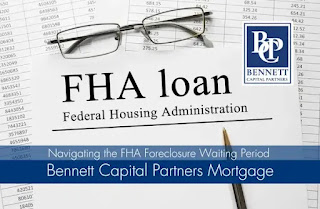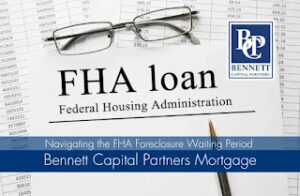Title: FHA Loan Pending foreclosure period:
What You Need to Know About the FHA Loan Foreclosure Period
Many would-be homeowners have found relief through the Federal Housing Administration (FHA) loan programmed, especially those with poor credit or little money for a down payment. However, struggling homeowners can find themselves in a precarious position where foreclosure becomes a real possibility. For those coping with these difficult situations, understanding the FHA loan pending foreclosure term is essential. We will go into great detail on what an FHA loan is, what to do if you’re facing foreclosure, and how the pending foreclosure period functions in this thorough tutorial.
Basics of FHA Loans
Let’s first discuss the FHA loan and why so many homeowners value it before getting into the specifics of the impending foreclosure phase.
An FHA Loan is what?
The FHA is a 1934-founded government organization that provides mortgage insurance to lenders. In comparison to traditional mortgages, the FHA loan programmed offers more flexible qualification requirements and lower down payment choices in an effort to increase access to homeownership for a wider spectrum of people.
Key characteristics of FHA loans include:
Lower Down Payments: FHA loans normally only need a 3.5% down payment of the home’s cost, making homeownership more accessible to people with little resources.
Flexible Credit Requirements: FHA loans are a good alternative for borrowers with less-than-perfect credit because they are more forgiving of credit scores.
Competitive Interest Rates: FHA loans frequently provide competitive interest rates, which can be attractive to borrowers despite the fact that they can vary.
Mortgage Insurance: Throughout the life of the loan, borrowers are obligated to pay mortgage insurance premiums (MIP). In the event that the borrower defaults on the loan, these premiums safeguard the lender.
Having an FHA Loan and Being in Foreclosure
Despite its benefits, an FHA loan does not protect borrowers against unanticipated events or financial difficulties. If a homeowner with an FHA loan doesn’t pay their mortgage, they could still lose their home to foreclosure. When a borrower is unable to make timely mortgage payments, a lender may legally take control of the property by filing for foreclosure.
Following are examples of FHA loan foreclosure causes:
Missed Payments: The main cause of foreclosure is falling behind on mortgage payments.
Failure to pay additional obligations, such as real estate taxes or homeowners association dues, may result in default on the loan.
Property Abandonment: If a homeowner abandons their home, the lender may start the foreclosure process.
Violation of Loan Terms: Foreclosure may occur if a borrower violates the terms of some FHA loans, such as the requirement to maintain homeowner’s insurance.
The FHA Loan Pending Foreclosure Period: An Overview
Understanding the impending foreclosure period and the procedures involved is crucial if you find yourself in a scenario where defaulting on your FHA loan payments seems unavoidable. When beginning foreclosure proceedings, lenders must adhere to strict FHA rules and deadlines.
Alerting and Counselling
The FHA mandates that lenders give consumers information about their rights and options before beginning the foreclosure process. Before the lender can start the foreclosure process, borrowers must receive a written notice for at least 30 days. The alternatives to foreclosure that are available, such as loan modifications, repayment schedules, or selling the property, should be described in this notification.
Borrowers also have the option to seek housing counselling during this time through a housing counselling organization that has been approved by the FHA. These organizations can offer advice on preventing foreclosures and look into viable alternatives to assist homeowners in maintaining their houses.
The Waiting Period of 90 Days
There is a required 90-day waiting time after the initial 30-day notification period has ended before the lender can start the foreclosure process. The borrower has the chance to collaborate with the lender during this time to look into alternatives to foreclosure. This time frame is intended to provide borrowers the chance to either sell the property, sell their defaulted debt, or work out a loan modification or payback schedule.
The Last Step: Initiating a Foreclosure
The borrower has 90 days to fix the default; if no action is taken during that time, the lender may proceed with filing a foreclosure case. This entails starting a legal procedure to seize the property.
The precise timetable and foreclosure process can differ from state to state, so it’s important to speak with a lawyer or a housing counsellor to comprehend the particular laws and processes in your location.
Afterwards and Loss Mitigation
Homeowners still have a chance to keep their homes even after foreclosure. The FHA offers options for post-foreclosure loss mitigation, which may include:
Redemption: Some states let homeowners to repurchase their property by paying off the remaining mortgage payment during this time.
Deed in Lieu of Foreclosure: In order to prevent foreclosure, homeowners might voluntarily give the lender the title to their home.
Pre-Foreclosure Sales: In order to pay off their debts prior to foreclosure, borrowers may be able to sell the property.
Repayment Plans or Loan Modifications: In some circumstances, homeowners may be able to work out a modification of their loan conditions with their lender or set up a repayment plan to get out of default.
Safeguarding your rights
It’s crucial for borrowers to be aware of their rights and seek competent advice during the FHA loan foreclosure process. The following actions will help you defend your rights and possibly stop a foreclosure:
Respond to Notices: In the event that you get a notice of impending foreclosure, act quickly and seek advice from a counselling service that has been approved by the FHA.
Review your loan documents to become familiar with the conditions of your FHA loan and any potential options or rights.
Consult legal counsel: If you have questions about your legal options or need help negotiating, speak with a lawyer who has experience handling foreclosure cases.
Investigate Loss Mitigation Options: Consult with your lender to investigate loss mitigation strategies that may help you avoid foreclosure or lessen its financial toll.
Stay Informed: Be aware of the timescales and foreclosure process in your state as they might vary greatly.
Conclusion
Although facing foreclosure is a difficult event, being aware of your rights as a homeowner and the FHA loan pending foreclosure term will help you get through it. Keep in mind that foreclosure is not always a possibility, and there are frequently ways to negotiate with your lender to avoid losing your house or lessen the financial toll of foreclosure. During this challenging time, it’s critical to seek competent advice and be knowledgeable about your options.


